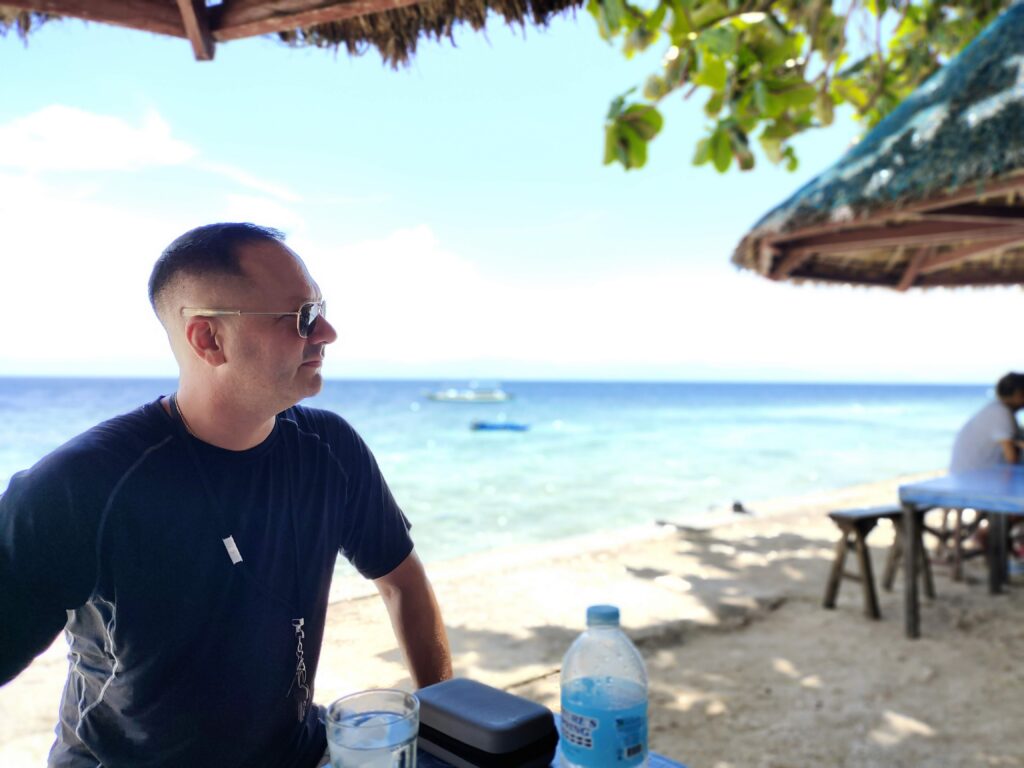The Philippines offers a unique and alluring prospect for retirement. With its stunning natural beauty, vibrant culture, and affordable cost of living, it’s a destination that captivates many seeking a peaceful and fulfilling retirement. From the pristine beaches to the lush tropical landscapes, the Philippines provides a serene and rejuvenating environment. However, it’s important to carefully consider factors such as healthcare, infrastructure, and personal preferences to determine if retirement in the Philippines is the right fit for you.
Why the Philippines Stands Out in Southeast Asia: The Power of English
In my opinion, the Philippines is one of the best destinations in Southeast Asia, largely because of the widespread use of English. When transitioning to life overseas, effective communication is a crucial factor, and the ability to speak and understand English makes a world of difference. This is one of the main reasons why countries like Thailand and Vietnam may be overlooked by some expats.
While English is widely spoken in urban areas across the Philippines, it’s worth noting that in more remote provinces, the language may not be as prevalent. However, in the cities, being able to communicate in English makes daily life significantly easier. Whether you’re navigating a business transaction, dining out, or simply engaging in conversations, the language barrier is minimized.
This accessibility often leads people to overlook some of the country’s less favorable aspects, such as infrastructure challenges, food options, and pollution. The ease of communication can simplify complex tasks—like dating, making friends, or managing business affairs—which, for many, outweighs these other considerations.
English was a significant reason I chose to leave Vietnam and return to the Philippines. If I were to compare the pros and cons of other Southeast Asian countries, many would likely offer more advantages in terms of infrastructure, cost of living, or lifestyle. However, the importance of English in daily life cannot be overstated. Ultimately, this was one of the most compelling factors in my decision to settle in the Philippines.

Don’t Forget Travel Medical Insurance When Retiring or Traveling Abroad
Wherever you choose to retire or travel, one essential thing you shouldn’t overlook is travel medical insurance. Every week, I hear stories of expats getting into motorbike accidents, contracting dengue fever, or suffering from severe food poisoning that lands them in the hospital. Having insurance in place is crucial for peace of mind and financial protection in these situations. The one I recommend is SafetyWing.
Whether you’re planning a trip or a permanent move to the Philippines—or anywhere else, for that matter—make sure to get a quote and secure your coverage. It’s a small step that can make a big difference when the unexpected happens.

The Philippines: A Diverse Haven for Expats
With over 7,000 islands, the Philippines offers an incredible variety of destinations to suit almost any expat’s lifestyle. If you prefer cooler climates, areas like Baguio, Bukidnon, and Valencia provide lush natural landscapes and evenings cool enough that you’ll need a jacket. For those seeking a true tropical island experience, places like Bohol, Malapascua, and Boracay deliver pristine beaches and laid-back island vibes.
Some expats thrive in the serenity of rural life, surrounded by coconut trees and jungle, far from the hustle of city life. On the other hand, if you’re looking for a more Westernized environment with modern amenities, areas like Iloilo, Bonifacio Global City (BGC), Makati, Mactan Newtown, and Cebu’s IT Park might be more to your liking.
That said, life in the Philippines can be unorganized and chaotic at times, and some expats find it difficult to adjust. It’s important to recognize that the Philippines isn’t a one-size-fits-all destination for those seeking to retire in Southeast Asia. But for many, the diversity of environments and experiences makes it a top choice.

The 3rd Reason to Move to the Philippines: Filipino Friendliness
One of the standout qualities of the Philippines is the warmth and hospitality of its people. Filipinos are known for their friendliness, and even in challenging times—such as during typhoons—they somehow manage to keep smiling. Their positive outlook on life, love for laughter, and genuine kindness make it easy to feel welcome.
In comparison to cultures that may be more restrictive due to religion, language, or traditions, Filipino culture is remarkably open and easy to assimilate into. Whether you’re making new friends or simply navigating daily life, the friendliness of the Filipino people is a major reason many expats find it easier to settle here compared to places like Thailand or Vietnam.

Reasons You May Not Want to Retire in the Philippines
One of the main challenges expats face in the Philippines is the infrastructure, which can sometimes feel outdated and unorganized. While I won’t list every issue you might encounter, I’ll highlight a few common ones that tend to frustrate newcomers.
That being said, these issues don’t affect everyone in the same way. Personally, over the years, I’ve learned not to let them stress me out as much. However, during the early days of living here, I found myself frequently annoyed and frustrated. It’s important to understand that adapting to life in the Philippines can take time, and these concerns may be a deciding factor for some when considering retirement here.
One of the significant drawbacks of retiring in the Philippines is the limited availability and quality of medical coverage and healthcare facilities. While major cities like Manila, Cebu, and Davao offer decent hospitals with some modern equipment, healthcare in rural areas can be quite basic and often lacks the advanced treatments or technologies found in Western countries. Many expats also find that health insurance options are limited and may not cover extensive medical procedures, leading to high out-of-pocket expenses. For serious or specialized medical care, many choose to travel abroad to countries like Thailand or return home, which can be costly and inconvenient. This lack of robust healthcare infrastructure is a key concern for anyone considering long-term living in the Philippines.
Another challenge expats may face when retiring in the Philippines is the lack of consistent quality in housing. While there are upscale developments in major cities and tourist areas, many parts of the country have outdated or poorly constructed homes that may not meet Western standards. Issues like inconsistent water pressure, unreliable electricity, and inadequate ventilation are common, especially in rural areas. Additionally, modern amenities such as efficient insulation, proper plumbing, and high-quality materials can be hard to find, which may require costly renovations to bring a property up to your comfort level. This inconsistency in housing quality can be frustrating for those used to more reliable and modern living conditions.
Lastly, food options in the Philippines can be a mixed experience for many expats. While the country offers some delicious local dishes, such as adobo, lechon, and fresh seafood, the variety of international cuisine can be limited, especially outside major cities. In rural areas, it can be challenging to find diverse or high-quality ingredients, making it difficult for those who enjoy cooking or dining out with a wide range of options. Additionally, Western-style restaurants and specialty grocery stores are often more expensive and harder to come by. For expats used to a broad selection of global cuisines, the food scene in the Philippines may feel repetitive or lacking in variety, which can be a drawback for some.
Retiring in the Philippines offers a mix of benefits and challenges. The country’s widespread English proficiency, warm Filipino hospitality, and diverse environments—from cool mountain regions to tropical islands—make it attractive for many expats. However, it also comes with notable downsides, such as outdated infrastructure, inconsistent healthcare quality, and limited food variety, especially outside major cities. Housing standards can vary significantly, and adjusting to the slower pace of life may take time. Ultimately, the Philippines can be an appealing destination for those seeking affordability and friendliness, but it may not be ideal for everyone.
This post may contain affiliate links which means I may receive a commission for purchases made through links. I will only recommend products that I have personally used! Learn more on my Private Policy page.

